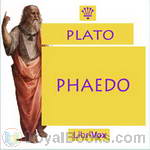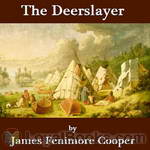|
Books Should Be Free Loyal Books Free Public Domain Audiobooks & eBook Downloads |
|
|
Books Should Be Free Loyal Books Free Public Domain Audiobooks & eBook Downloads |
|
Fiction |
|---|
|
Book type:
Sort by:
View by:
|
By: Wilkie Collins (1824-1889) | |
|---|---|
 Evil Genius
Evil Genius
The Evil Genius, one of Wilkie Collins' last works, is subtitled "A Domestic Scene". It is the intriguing tale of family Linley, including the "evil genius", and their governess Sydney Westerfield. In colorful pictures, Collins presents the story of this family, which becomes entangled in the often hyprocritical Victorian perceptions of morality and decency. | |
 Miss or Mrs.?
Miss or Mrs.?
Natalie Graybrooke is in love with her cousin Launcelot Linzie, but engaged to Mr. Turlington, an older man who covets her fortune and whom she detests. Turlington is the executor of Natalie's father's estate. When Natalie secretly marries her cousin, Turlington arranges to have Natalie's father murdered, to gain control of his fortune. | |
 Antonina
Antonina
| |
 Rogue's Life
Rogue's Life
"[T]he story offers the faithful reflection of a very happy time in my past life. It was written at Paris, when I had Charles Dickens for a near neighbor and a daily companion, and when my leisure hours were joyously passed with many other friends, all associated with literature and art, of whom the admirable comedian, Regnier, is now the only survivor. The revising of these pages has been to me a melancholy task. I can only hope that they may cheer the sad moments of others. The Rogue may surely claim two merits, at least, in the eyes of the new generation—he is never serious for two moments together; and he "doesn't take long to read." W. C." | |
 Little Novels
Little Novels
| |
 Two Destinies
Two Destinies
Mary Dermody is destined to be together with George Germaine one day, or so at least her grandmother prophesizes. Destiny at first doesn't seem to adhere to this plan, and the pair is separated and lose sight of each other. But when George saves a young woman from drowning, a strong connection seems to develop between them, which seems to be almost supernatural.. | |
By: Stephen Crane (1871-1900) | |
|---|---|
 Selected Short Stories
Selected Short Stories
At the time of his death at the age of 28, Stephen Crane had become an important figure in American literature. He was nearly forgotten, however, until two decades later when critics revived interest in his life and work. Stylistically, Crane's writing is characterized by vivid intensity, distinctive dialects, and irony. Common themes involve fear, spiritual crises and social isolation. Although recognized primarily for The Red Badge of Courage, which has become an American classic, Crane is also known for short stories such as "The Open Boat", "The Blue Hotel", "The Bride Comes to Yellow Sky", and The Monster... | |
 Maggie, a Girl of the Streets
Maggie, a Girl of the Streets
| |
 Active Service
Active Service
| |
By: Plato (428/427 BC - 348/347 BC) | |
|---|---|
 Phaedo
Phaedo
Plato's Phaedo is one of the great dialogues of his middle period, along with the Republic and the Symposium. The Phaedo, which depicts the death of Socrates, is also Plato's seventh and last dialogue to detail the philosopher's final days (the first six being Theaetetus, Euthyphro, Sophist, Statesman, Apology, and Crito).In the dialogue, Socrates discusses the nature of the afterlife on his last day before being executed by drinking hemlock. Socrates has been imprisoned and sentenced to death by an Athenian jury for not believing in the gods of the state and for corrupting the youth of the city... | |
By: James Fenimore Cooper (1789-1851) | |
|---|---|
 The Deerslayer
The Deerslayer
The Deerslayer, or The First Warpath (1841) was the last of James Fenimore Cooper’s Leatherstocking tales to be written. Its 1740-1745 time period makes it the first installment chronologically and in the lifetime of the hero of the Leatherstocking tales, Natty Bumppo. | |
 The Pioneers
The Pioneers
The Pioneers: The Sources of the Susquehanna; a Descriptive Tale is one of the Leatherstocking Tales, a series of five novels by American writer James Fenimore Cooper. The Pioneers was first of these books to be published (1823), but the period of time covered by the book (principally 1793) makes it the fourth chronologically. (The others are The Deerslayer, The Last of the Mohicans, The Pathfinder, and The Prairie.)The story takes place on the rapidly advancing frontier of New York State and features... | |
 Prairie - A Tale
Prairie - A Tale
The story opens with Ishmael, his family, Ellen and Abiram slowly making their way across the virgin prairies of the Midwest looking for a homestead, just two years after the Louisiana Purchase, and during the time of the Lewis and Clark Expedition. They meet the trapper (Natty Bumppo), who has left his home in New York state to find a place where he cannot hear the sound of people cutting down the forests. In the years between his other adventures and this novel, he tells us only that he has walked all the way to the Pacific Ocean and seen all the land between the coasts (a heroic feat, considering Lewis and Clark hadn’t yet completed the same trek). | |
 The Two Admirals
The Two Admirals
| |
 The Lake Gun
The Lake Gun
| |
 Oak Openings
Oak Openings
| |
 Autobiography of a Pocket-Handkerchief
Autobiography of a Pocket-Handkerchief
| |
 The Chainbearer Or, The Littlepage Manuscripts
The Chainbearer Or, The Littlepage Manuscripts
| |
 Tales for Fifteen, or, Imagination and Heart
Tales for Fifteen, or, Imagination and Heart
| |
 The Monikins
The Monikins
| |
 The Redskins; or, Indian and Injin, Volume 1. Being the Conclusion of the Littlepage Manuscripts
The Redskins; or, Indian and Injin, Volume 1. Being the Conclusion of the Littlepage Manuscripts
| |
By: Kate Chopin (1850-1904) | |
|---|---|
 At Fault
At Fault
| |
By: James Baldwin (1841-1925) | |
|---|---|
 Old Greek Stories
Old Greek Stories
A retelling of old Greek stories involving mythological heroes and their adventures. Tales include those of Prometheus, Io, Perseus and Theseus. (Introduction by Iris McLeod) | |
By: O. Henry (1862-1910) | |
|---|---|
 Cabbages and Kings
Cabbages and Kings
This work is O. Henry's first published volume and is considered to be his only novel. The plot is composed of several short stories, which were inspired by the author's six-month stay in Honduras in the late 1890s. "The incidents embracing as they do, a variety of subjects, hang loosely together, so loosely in fact, that at times one finds no apparent connection between them at all, and yet in the end one sees how each is intimately related to the other. ...Written by a less able hand than O. Henry's the book might have been a sad jumble, perhaps comprehensible to none but the Walrus--but as it is, one finds a joy in its every obscurity... | |
 Whirligigs
Whirligigs
A collection of short stories. | |
 Gentle Grafter
Gentle Grafter
If Jefferson "Parleyvoo" Pickens had appeared in print just a few years later, he might have been the "Gentle Grifter" instead of the "Gentle Grafter", the name O. Henry picked for him. His situation as an ethical graft artist gives Jeff an extra impediment in pursuing his craft, but he never wanted it to be too easy. The result is fourteen delightful tales for us and a number of new partners for him. With those partners (he always has at least one) he works his way through a number of confidence games... | |
 Heart of the West
Heart of the West
A collection of short stories by the legendary O. Henry. | |
 Options
Options
O. Henry needs no introduction of course; the man who made the short story with the surprise ending famous. These 16 stories are all wonderful examples of his word sculpting art. They include: "The Rose of Dixie"; The Third Ingredient; The Hiding of Black Bill; Schools and Schools; Thimble, Thimble; Supply and Demand; Buried Treasure; To Him Who Waits; He Also Serves; The Moment of Victory; The Head-Hunter; No Story; The Higher Pragmatism; Best-Seller; Rus in Urbe; A Poor Rule | |
 Heart of the West [Annotated]
Heart of the West [Annotated]
| |
By: John Bunyan (1628-1688) | |
|---|---|
 Pilgrim's Progress in Words of One Syllable
Pilgrim's Progress in Words of One Syllable
The Pilgrim's Progress from This World to That Which Is to Come is a Christian allegory written by John Bunyan and published in February, 1678. It is regarded as one of the most significant works of religious English literature, has been translated into more than 200 languages, and has never been out of print. The author says in the preface " I have endeavored as far as possible to avoid hard and technical expressions, and I cannot but think that the mere fact of the brevity of the words must be a great attraction to beginners of all ages. | |
By: Rafael Sabatini | |
|---|---|
 The Tavern Knight
The Tavern Knight
Follow the exploits of Sir Crispin Galliard, also known as The Tavern Knight, in his defence of the King of England against Cromwell and his Puritan Entourage. | |
 Saint Martin's Summer
Saint Martin's Summer
| |